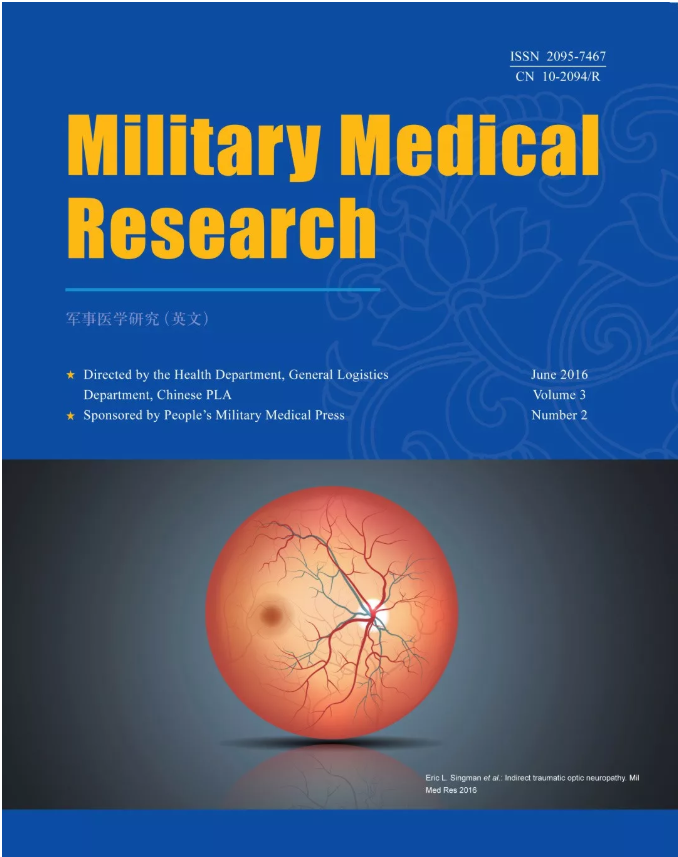Exosomal mediators in sepsis and inflammatory organ injury: unraveling the role of exosomes in intercellular crosstalk and organ dysfunction
IF 16.7
2区 医学
Q1 MEDICINE, GENERAL & INTERNAL
引用次数: 0
Abstract
Sepsis, a severe systemic inflammatory response to infection, remains a leading cause of morbidity and mortality worldwide. Exosomes, as mediators of intercellular communication, play a pivotal role in the pathogenesis of sepsis through modulating immune responses, metabolic reprogramming, coagulopathy, and organ dysfunction. This review highlights the emerging significance of exosomes in these processes. Initially, it provides an in-depth insight into exosome biogenesis and characterization, laying the groundwork for understanding their diverse and intricate functions. Subsequently, it explores the regulatory roles of exosomes in various immune cells such as neutrophils, macrophages, dendritic cells, T cells, and B cells. This analysis elucidates how exosomes are pivotal in modulating immune responses, thus contributing to the complexity of sepsis pathophysiology. Additionally, this review delves into the role of exosomes in the regulation of metabolism and subsequent organ dysfunction in sepsis. It also establishes a connection between exosomes and the coagulation cascade, which affects endothelial integrity and promotes thrombogenesis in sepsis. Moreover, the review discusses the dual role of exosomes in the progression and resolution of sepsis, exploring their complex involvement in inflammation and healing processes. Furthermore, it underscores their potential as biomarkers and therapeutic targets. Understanding these mechanisms presents new opportunities for novel interventions to mitigate the severe outcomes of sepsis, emphasizing the therapeutic promise of exosome research in critical care settings.败血症和炎性器官损伤中的外泌体介质:揭示外泌体在细胞间串联和器官功能障碍中的作用
败血症是一种严重的全身性感染炎症反应,仍然是全球发病率和死亡率的主要原因。外泌体作为细胞间通信的介质,通过调节免疫反应、代谢重编程、凝血病和器官功能障碍,在败血症的发病机制中发挥着关键作用。本综述强调了外泌体在这些过程中新出现的重要作用。首先,它深入探讨了外泌体的生物发生和特征,为了解其多样而复杂的功能奠定了基础。随后,文章探讨了外泌体在中性粒细胞、巨噬细胞、树突状细胞、T 细胞和 B 细胞等各种免疫细胞中的调控作用。这一分析阐明了外泌体如何在调节免疫反应中发挥关键作用,从而导致败血症病理生理学的复杂性。此外,这篇综述还深入探讨了外泌体在脓毒症代谢调节和随后器官功能障碍中的作用。它还确定了外泌体与凝血级联之间的联系,凝血级联影响内皮完整性并促进败血症中的血栓形成。此外,综述还讨论了外泌体在脓毒症进展和缓解过程中的双重作用,探讨了外泌体在炎症和愈合过程中的复杂参与。此外,它还强调了外泌体作为生物标记物和治疗靶点的潜力。了解这些机制为采取新的干预措施减轻败血症的严重后果提供了新的机会,强调了外泌体研究在重症监护中的治疗前景。
本文章由计算机程序翻译,如有差异,请以英文原文为准。
求助全文
约1分钟内获得全文
求助全文
来源期刊

Military Medical Research
Medicine-General Medicine
CiteScore
38.40
自引率
2.80%
发文量
485
审稿时长
8 weeks
期刊介绍:
Military Medical Research is an open-access, peer-reviewed journal that aims to share the most up-to-date evidence and innovative discoveries in a wide range of fields, including basic and clinical sciences, translational research, precision medicine, emerging interdisciplinary subjects, and advanced technologies. Our primary focus is on modern military medicine; however, we also encourage submissions from other related areas. This includes, but is not limited to, basic medical research with the potential for translation into practice, as well as clinical research that could impact medical care both in times of warfare and during peacetime military operations.
 求助内容:
求助内容: 应助结果提醒方式:
应助结果提醒方式:


